No New Auto Tariffs For Japan, Probably

The United States and Japan have signed a limited trade deal that’s been simmering for some months now. President Donald Trump has been eager to secure a place where American farmers can send their goods now that the trade war with China has diminished American dealings with that market. In return, Japan wanted assurances from the U.S. that it will not impose any new automotive tariffs, as cars remain one of its chief exports.
While the island nation didn’t get the guarantee in writing, Prime Minister Shinzo Abe claims he received a verbal promise. This is to be the first part of a broader trade deal between the two countries.
Under the preliminary deal, Japan will reduce tariffs on roughly $7.2 billion of American farming goods, including items like corn, wine, pork, and beef. Some items, like dairy products, do not receive protections, however.
While important for American farmers, especially after the United States’ abandonment of the Trans-Pacific Partnership, the deal is really a preamble for follow-up deals more concerned with industrial goods. In fact, Trump brought up the automotive sector more than once when announcing the accord at the White House on Monday.
“I said to Prime Minister Abe, ‘Please, we need auto plants.’ And I said that right at the beginning when I first met with him, and immediately liked him a lot. And they’ve really produced. They’re doing a lot of plants, not just auto. Many, many — many, many plants and factories are being built in the United States by Japan and Japanese companies,” the president said. “These agreements will ensure that our economic partnership flourishes brighter than ever before. I think we’re probably at a stage with Japan where I don’t think our relationship has ever been stronger or better than it is right now.”
For now, Trump says the two countries continue to work on a more comprehensive agreement while the existing 2.5-percent tariff on Japanese auto exports remain in place. The limited trade pact also includes market-opening commitments on $40 billion worth of digital commerce between the two countries.
The deal was signed by U.S. Trade Representative Robert Lighthizer and Japanese Ambassador to the U.S. Shinsuke Sugiyama in the White House and appears to have been unchanged from the details agreed upon by Trump and Abe in September. Expect subsequent deals to be announced soon, likely dealing with cars and automotive parts directly.
“It certainly is the Japanese ambition to have car tariffs be discussed,” Lighthizer said. “But at this point, it’s not part of this agreement.”
[Image: CAPTAINHOOK/Shutterstock]

A staunch consumer advocate tracking industry trends and regulation. Before joining TTAC, Matt spent a decade working for marketing and research firms based in NYC. Clients included several of the world’s largest automakers, global tire brands, and aftermarket part suppliers. Dissatisfied with the corporate world and resentful of having to wear suits everyday, he pivoted to writing about cars. Since then, that man has become an ardent supporter of the right-to-repair movement, been interviewed on the auto industry by national radio broadcasts, driven more rental cars than anyone ever should, participated in amateur rallying events, and received the requisite minimum training as sanctioned by the SCCA. Handy with a wrench, Matt grew up surrounded by Detroit auto workers and managed to get a pizza delivery job before he was legally eligible. He later found himself driving box trucks through Manhattan, guaranteeing future sympathy for actual truckers. He continues to conduct research pertaining to the automotive sector as an independent contractor and has since moved back to his native Michigan, closer to where the cars are born. A contrarian, Matt claims to prefer understeer — stating that front and all-wheel drive vehicles cater best to his driving style.
More by Matt Posky
Latest Car Reviews
Read moreLatest Product Reviews
Read moreRecent Comments
- Wjtinfwb Rivaled only by the Prowler and Thunderbird as retro vehicles that missed the mark... by a mile.
- Ravenuer Haven't seen one of these in years! Forgot they existed.
- Pig_Iron I one of those weirdos who liked these.
- SCE to AUX Inflation adjusted $79k today (!), so I guess $28k is a bargain....This is another retro car that was trying too hard, but it is very nice.
- EngineerfromBaja_1990 It might provide an edge in city driving but from what I've read elsewhere the Hybrid trucks are 600 lbs to 700 lbs heavier than the gas only trucks. That translates to a curb weight of around 5000 lbs which is not uncommon for a full size truck.And a test drive suggested the Hybrid is not quicker than the gas only trucks. So it looks like the Hybrid powertrain is pretty much compensating in power for all that added weight while not providing significant fuel savings. Not what many would expect after shelling out an extra $5K - $7K for the next step up in power.



















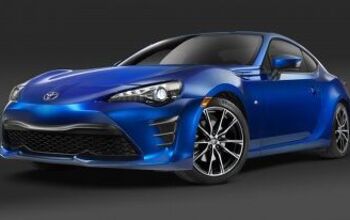
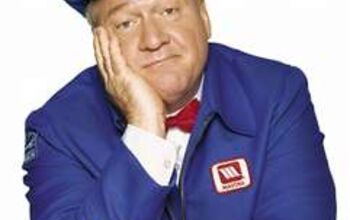
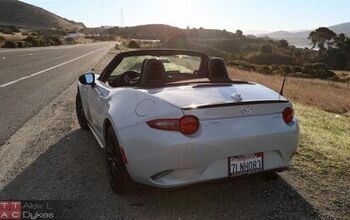
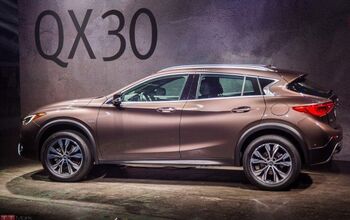
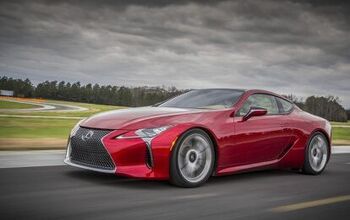









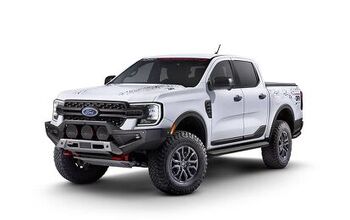
Comments
Join the conversation
I thought we already had this article? Is this article just here for the clicks?
This comment is awaiting moderation